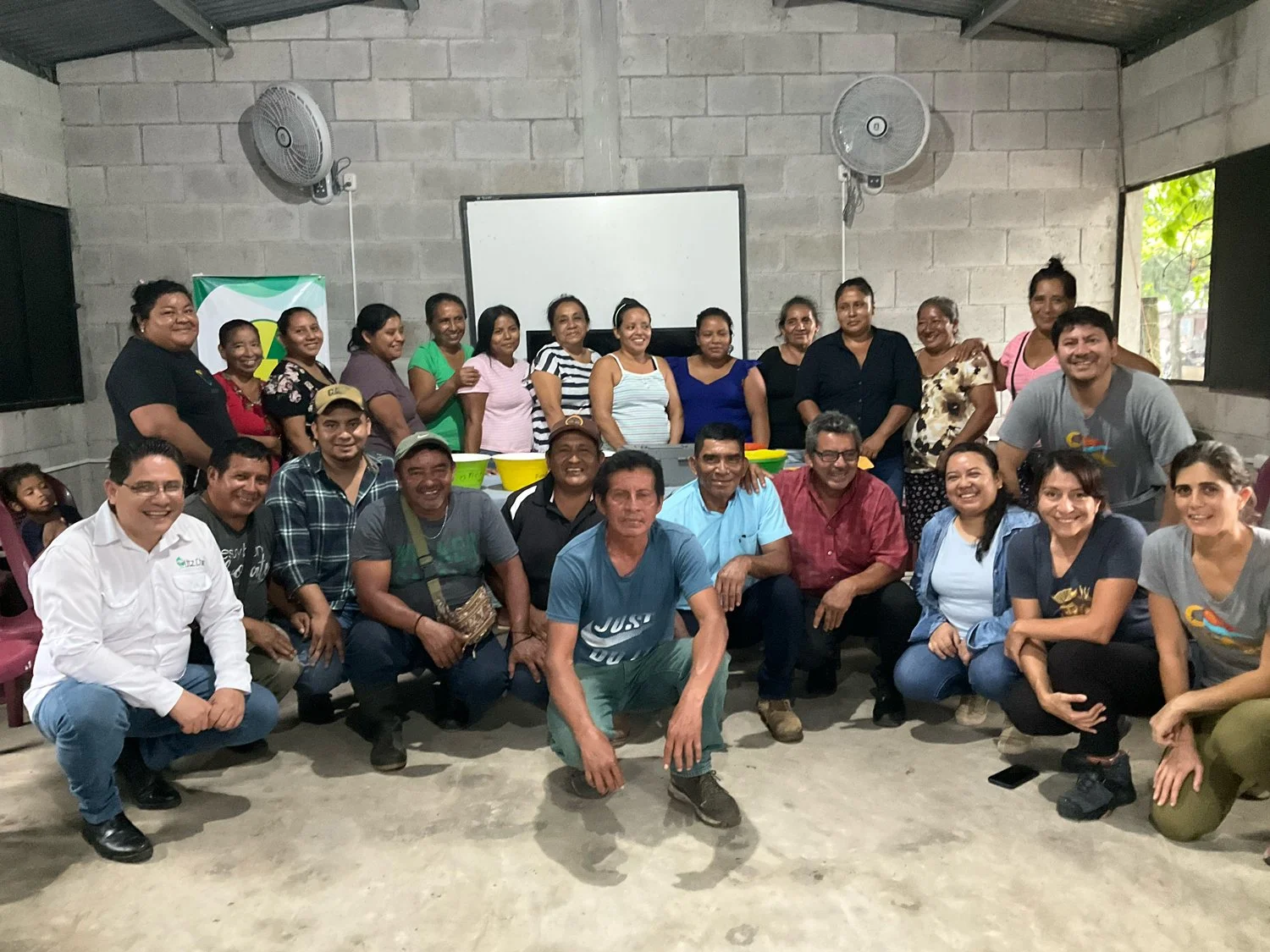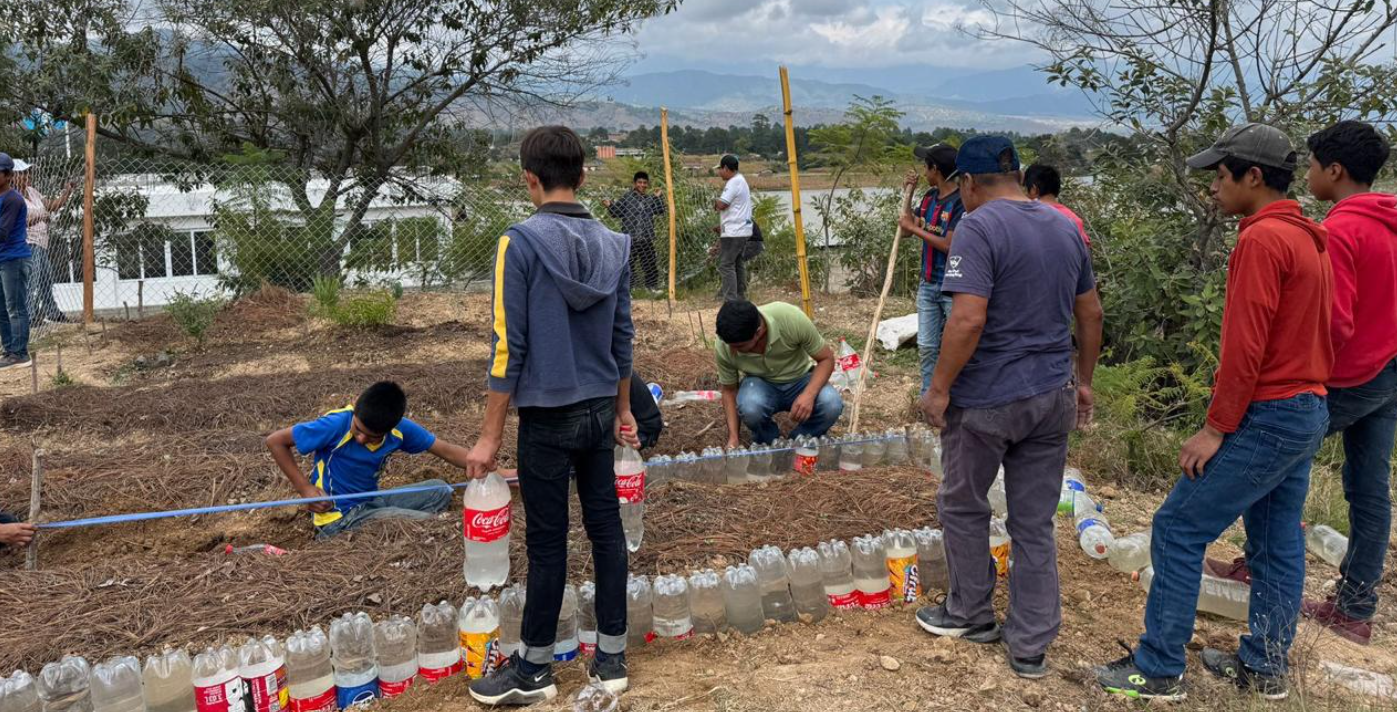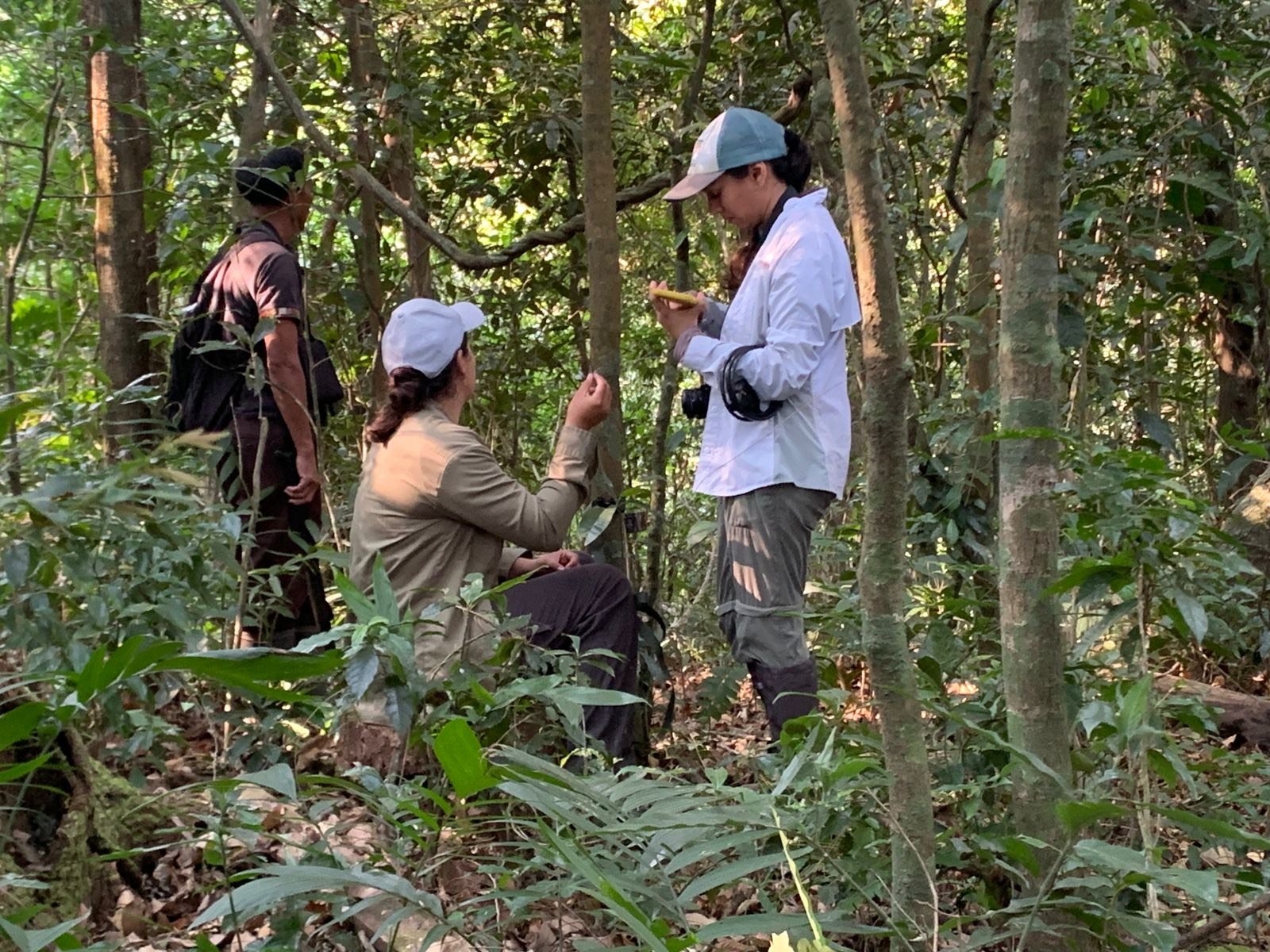El Asintal
When the 110 families of El Asintal resettled in Guatemala, they arrived home to a near-empty plot of land, with scarce resources to rebuild.
Like many Indigenous communities in the region, these families were displaced amidst Guatemala’s violent civil war. The government’s designation of lands for resettlement in the early 2000s was an opportunity to return home, but not without significant debt and great hardship.
Feeding the Future
Our partners throughout Mesoamerica take to heart that youth are the future of their efforts, and of their communities.
While many of our partners focus on programs that improve food security for youth and families, they also work to integrate young people into those programs, ensuring learnings and practices are carried forward.
In solidarity with la Nueva Trinidad
On Wednesday June 4th, following the eruption of Volcán de Fuego, 163 families from the community of la Nueva Trinidad were once again forced to flee their homes to seek shelter.
New Steps Towards Autonomy in La Bendición
La Bendición, “the blessing,” is a rural community in the Guatemalan highlands, formed by more than 80 Maya families. After being displaced from their homes amidst Guatemala’s Civil War, these families came together in 2000 to purchase a communal land base and rebuild their livelihoods.
Growing Grassroots Organizations in Mesoamerica
We’ve partnered with the Climate and Land Use Alliance (CLUA) and Coordinadora de Mujeres Líderes Territoriales de Mesoamérica (CMLT) over the past two years to support community-based organizations in strengthening their institutional capacity.
La Colectiva
La Colectiva is a feminist consultancy formed by four Indigenous women, born from challenges they faced within other organizations. As many women within community organizations still encounter an ingrained machismo culture and majority male leadership, La Colectiva seeks to re-empower at the personal and grassroots level.
People over Projects: Maria Magdalena Ixquiactap Tuc
Maria Magdalena Ixquiactap Tuc – “Magda” – has been a key leader in a collaboration between TWP and Coordinadora de Mujeres Líderes Territoriales de Mesoamérica (CMLT). As part of the regional initiative, Magdalena facilitates capacity building and knowledge exchange amongst community-based organizations in Guatemala.
Building Sustainable Futures in Guatemala
After a long effort to organize and access support, the Association of Xinca Agroecological Promoters of Jalapa (ASOPROAJ) attained legal status in 2022. ASOPROAJ is an association of more than 90 members from Indigenous Xinca communities in Guatemala, working to practice agroecology, develop sustainable livelihoods, and protect their territories.
Utz Ché, Working From the Ground Up
TWP has partnered with Utz Ché, a network of over 40 communities and collectives in Guatemala, since 2012. Utz Ché means “good tree” in the Mayan language, K’iche’, and the organization represents approximately 200,000 people throughout the country, more than 90% of them Indigenous.
A Forest Full of Stories: Discovering La Bendición
In early 2023, passing through a hard time personally and trying to find my way back to the biology field, I stumbled upon a hidden gem in southern Guatemala, the community of La Bendición, thanks to applying to a job as a researcher assistant. True to its name, this place felt like a blessing from the moment I arrived.
A Week of Shared Learning in Guatemala City
From June 17-20, we had the privilege of hosting a week-long knowledge exchange in Guatemala City, marking the conclusion of phase 1 of our pilot project in collaboration with the Coordinadora de Mujeres Líderes Territoriales de Mesoamérica (CMLT).
Hope in ASOPROAJ’s Organizational Strengthening: A Path to Sustainability
The Association of Agroecological Promoters of Jalapa (ASOPROAJ), an indigenous organization of the Xinca people in Guatemala, represents a light of hope in the country's Dry Corridor, especially in the municipality of San Carlos Alzatate. Since its legal constitution in 2022, ASOPROAJ has grown to 80 promoters between men and women distributed throughout the region, there are currently 15 active members in leadership positions.
Dignified Livelihoods: Honoring “El Día del Trabajador”May 2024
“El Día del Trabajador” or “Labor Day” is celebrated throughout Latin America on May 1st, but to us at TWP, we believe it should be celebrated every day! Our team is proud to collaborate with local partners that help train, empower, and engage people to work hard for their communities, natural resources, rights, and economic opportunities.
Walking towards ‘Buen Vivir’ (Good Living)
With a solid trajectory, FUNDEBASE has been walking hand in hand with Indigenous farming communities in Guatemala for 28 years. The organization is committed to respecting and preserving Mayan knowledge, wisdom and cosmovision, focusing on food production through Agroecology.
Climate Migration Puts Pressure on the Next Generation
In Guatemala, we had the pleasure of meeting our newest TWP team member, Marlen Garcia (CAP Coordinator), reconnecting with our newest partner FUNDEBASE while visiting local communities around the Quiche Department, and visiting the community of El Tarral and other efforts by our partner Utz Che’.
Land, Water and Seeds: Millennial Heritage for Good Living
In November 2023, I had the opportunity to participate in the Gathering of Agroecological Promoters, titled "Land, Water, and Seeds: Millenary Heritage for Good Living." The event was collectively developed by a diverse group of 80 promoters representing approximately 13 indigenous communities.
3 Years After the Storm…
Back in November 2020, Hurricanes Eta and Iota (category 4 and 5) hit Central America with devastating force, causing rivers to overflow, washing out roads and bridges, eroding farmland, and flooding entire communities.
Declaration of Solidarity
In light of the difficult situation being experienced in Guatemala, and in solidarity with the partners and communities with whom Trees, Water & People works, we join with the voices denouncing corruption, recognizing that this is the only way for the country to move towards a dignified future, with equality and justice.
La Bendición (The Blessing)
In 2011, over 100 displaced families self-organized to purchase a piece of land. Today, approximately 75 families reside in “La Bendición”, Guatemala and the community continues to stand out for its strong leadership and capacity for self-management. After multiple years of fighting, La Bendición hit a huge milestone in June, 2022, when they finally celebrated having resolved the payment of the agrarian debt of the territory they occupy and own since 2001, a process of community struggle and perseverance.
Efforts against Gender-Based Violence.
Our project “Tz’unun: Ending Environmental Violence Against Indigenous Women in Guatemala through Empowerment in Community Forestry, Agroecology, and Collective Healing Spaces ” in partnership with Utz Che’, was selected as one of the winners of the 2020 USAID RISE Challenge, which aims to address gender-based violence (GBV) in environmental programs.





















